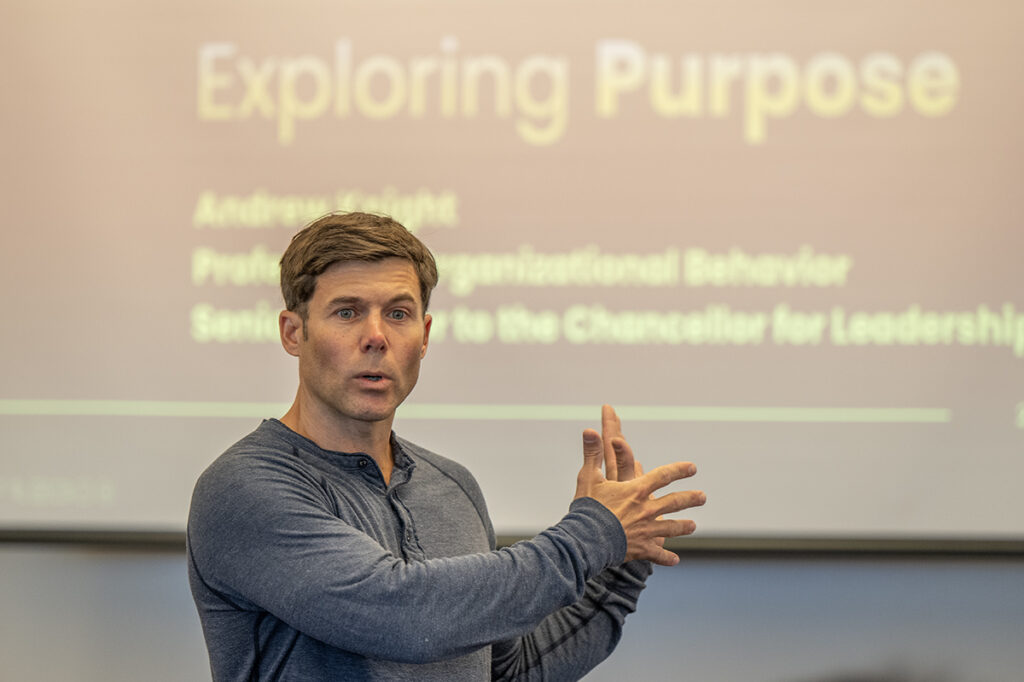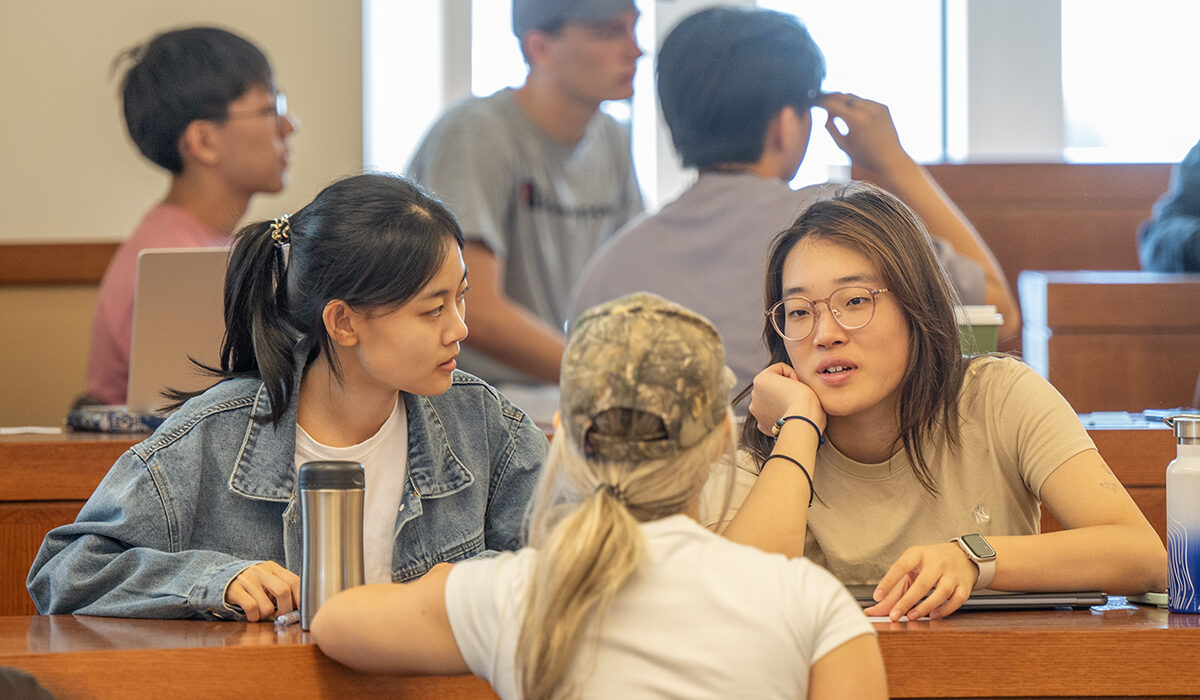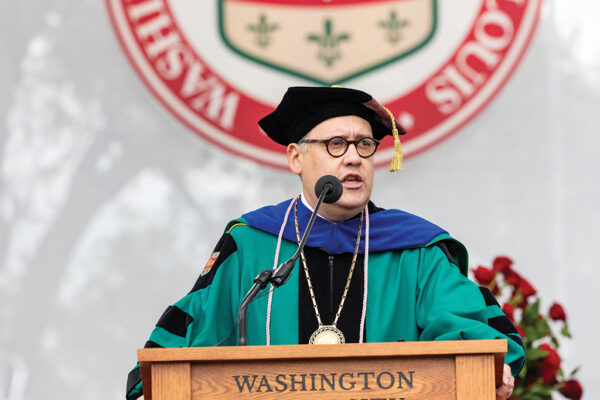The George and Carol Bauer Leaders Academy is offering new opportunities for WashU students to build their skills as leaders. The programs are open to all students regardless of their role on campus or career goals.
“One of the things we emphasize at WashU is that anyone can be a leader. It’s not about formal status,” said Andrew Knight, executive director of Bauer Leaders Academy and a senior advisor to the chancellor for leadership. “Everyone has the potential to have a positive impact — to energize and bring people around a common goal.”
Opportunities range from individualized leadership coaching to cohort-based workshops to classes that incorporate leadership development into the curriculum. These programs will help students leverage their purpose and strengths to become leaders of character and capability, Knight said. In addition, students who complete leadership coaching and coursework and document their growth as leaders may earn a citation in leadership.
The Bauer Leaders Academy will host its inaugural Leadership Week Oct. 23-25. Events include interactive workshops on essential skills such as communication, decision-making and team building; conversations with successful leaders from a variety of disciplines; and the first-ever Leaders Cup Challenge, when competitors leverage their leadership skills to solve puzzles and games.
‘We are committed to leadership development as an important element of a life well lived.’
Andrew Knight
Leadership development is one of the six priorities laid out in “Here & Next,” the university’s strategic plan. In March, WashU alumnus George Bauer and his wife, Carol Bauer, made a $20 million commitment to establish and endow the Bauer Leaders Academy. Knight said the academy, with support from Provost Beverly Wendland and Anna Gonzalez, vice chancellor for student affairs, is committed to providing leadership opportunities throughout a student’s time on campus, starting with Bear Beginnings orientation. This year, all first-year students participated in a leadership session, during which they learned about leadership, completed strength assessments and wrote their own purpose statements.
“Other universities offer leadership programs, but what makes WashU unique is that our programs are not limited to a single domain. And that’s because we’re not just interested in transforming people into leaders in their careers or in their extracurriculars; we are committed to leadership development as an important element of a life well lived,” said Knight, who is also a professor of organizational behavior at Olin Business School. “These are skills and values that permeate facets of life, whether you are starting a new business or working in pursuit of a community development goal.”
The new coaching program supports an existing array of leadership initiatives, including a seminar on purpose for Danforth Scholars and a cohort experience for emerging leaders in University Athletics. And this fall, the academy introduced leadership programming for Taylor Stars, which serves first-generation students.

In addition, a growing number of faculty members have leveraged curriculum innovation grants to develop leadership lessons for their courses in literature, composition, biology, political science and other disciplines. One such course is the “Small Business Initiative,” taught by Steve Malter, a professor of practice of management at Olin Business School. The class is open to all undergraduates and partners with local businesses and nonprofits to strategize solutions to ongoing challenges.
“It’s not a surprise that I include leadership education in my classes — a lot of business professors do. But I approach this from a student affairs perspective as well,” Malter said. “College, in particular the undergraduate experience, is such a transformational time in the lives of students. Regardless of what they are studying, they need to develop these skills to be successful.”
This semester, he has introduced lessons in purpose to help students better connect with the small business owners they serve.
“They come into their first meetings with their clients able to ask their clients about their motivations and how they have operationalized their purpose,” Malter said. “That understanding is essential if they are going to come up with solutions that align with the client’s purpose and values.”
Julia Macias, the Bauer Leaders Academy’s director of student leader development, expects programming to expand as students recognize leadership as a realizable competency, not a congenital trait. During the Bear Beginnings sessions, a minority of students identified themselves as effective leaders. The academy will survey students again to measure their growth.
“The process starts with purpose,” Macias said. “For a lot of these high-achieving students, the goal has been to get good grades so they can get to this point. But purpose is something bigger than academic achievements. The students were really hungry for that conversation — to think deeply about how their values connect with what they want to do.”
Zain Meer, a first-year student in Arts & Sciences, was one of those students. He liked that the orientation session emphasized that good leaders are honest and trustworthy as well as strong communicators and relationship builders.
“You could go all four years in college and learn all about computer science or biology but not really have to think about what it means to be a leader,” Meer said. “The opportunities are there to become a leader of a club or an organization, but it’s entirely dependent on you as the individual to take that step forward. I like that WashU recognizes that leadership is for everyone.”



